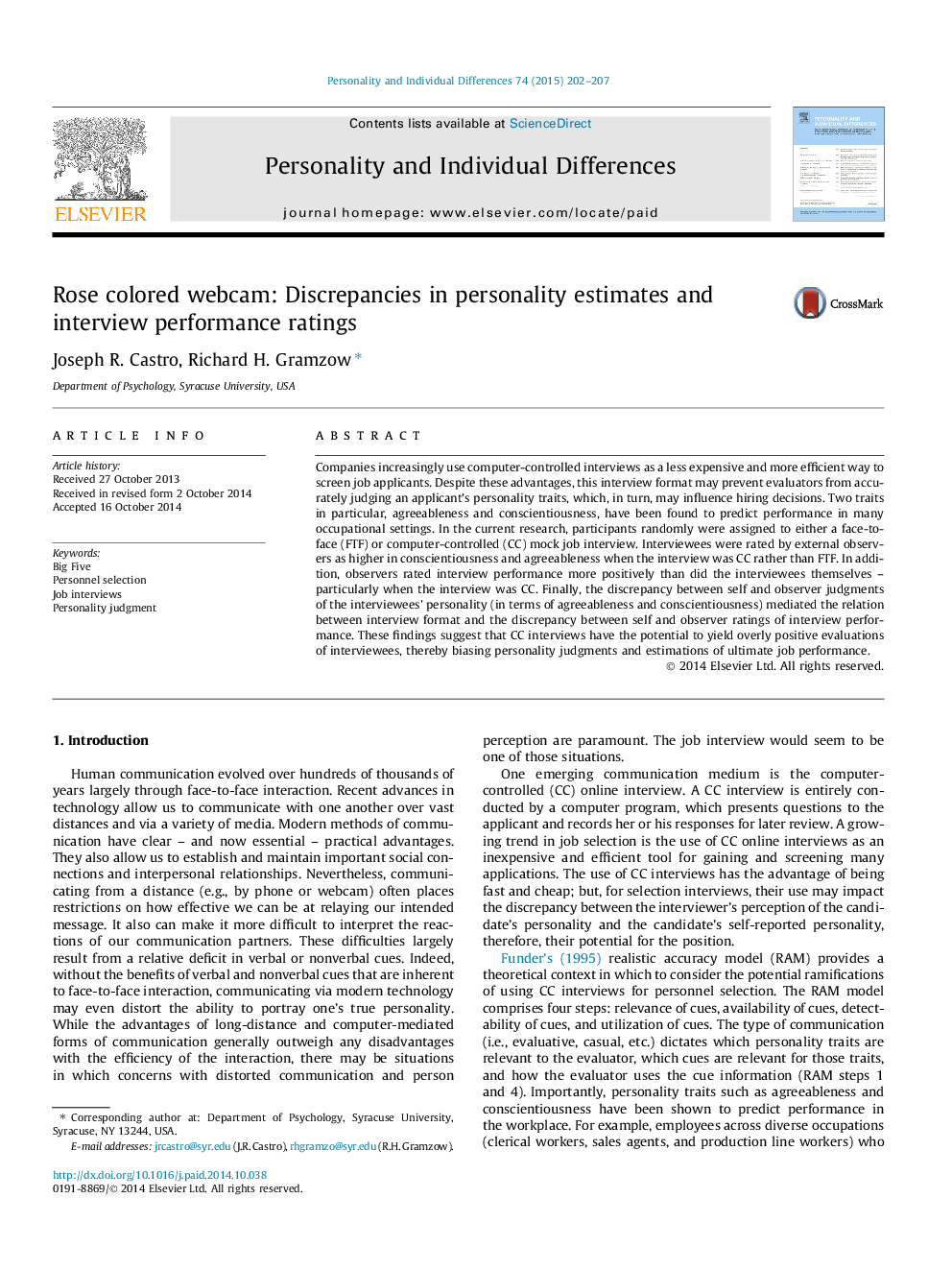| Article ID | Journal | Published Year | Pages | File Type |
|---|---|---|---|---|
| 7251995 | Personality and Individual Differences | 2015 | 6 Pages |
Abstract
Companies increasingly use computer-controlled interviews as a less expensive and more efficient way to screen job applicants. Despite these advantages, this interview format may prevent evaluators from accurately judging an applicant's personality traits, which, in turn, may influence hiring decisions. Two traits in particular, agreeableness and conscientiousness, have been found to predict performance in many occupational settings. In the current research, participants randomly were assigned to either a face-to-face (FTF) or computer-controlled (CC) mock job interview. Interviewees were rated by external observers as higher in conscientiousness and agreeableness when the interview was CC rather than FTF. In addition, observers rated interview performance more positively than did the interviewees themselves - particularly when the interview was CC. Finally, the discrepancy between self and observer judgments of the interviewees' personality (in terms of agreeableness and conscientiousness) mediated the relation between interview format and the discrepancy between self and observer ratings of interview performance. These findings suggest that CC interviews have the potential to yield overly positive evaluations of interviewees, thereby biasing personality judgments and estimations of ultimate job performance.
Related Topics
Life Sciences
Neuroscience
Behavioral Neuroscience
Authors
Joseph R. Castro, Richard H. Gramzow,
